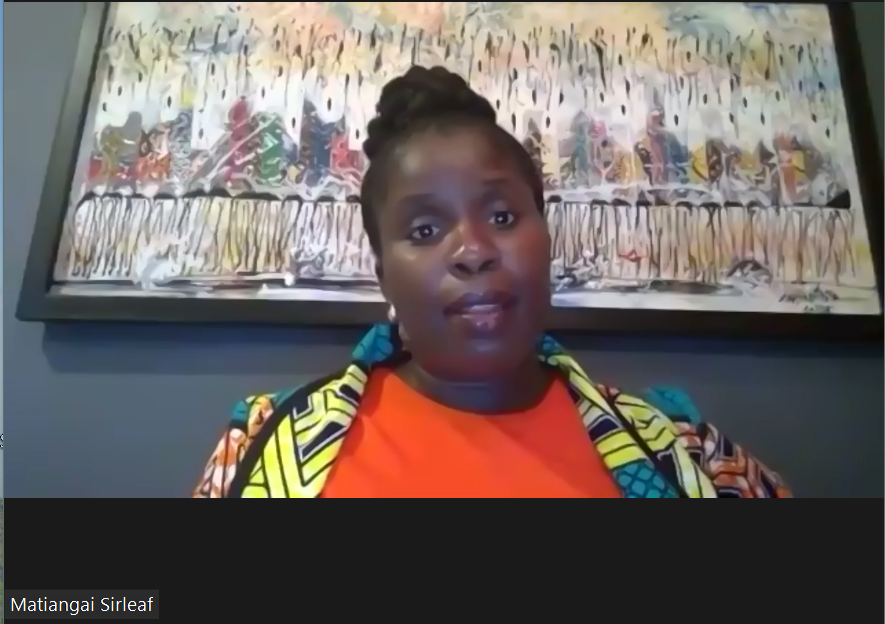On Friday September 11, Dr. Matiangai Sirleaf (University of Maryland) presented, “Africa, COVID-19, and Responsibility.” Sirleaf is the Nathan Patz Professor of Law. She writes and teaches in the areas of global public health law, public international law, international human rights law, international criminal law, post-conflict and transitional justice, and criminal law. Her most recent publications in this area include “Racial Valuation of Diseases” (forthcoming, 2020); “Global Health Law: Legal Foundations for Social Justice in Public Health” (forthcoming, 2020); and “Responsibility for Epidemics” (2018).
 Her lecture began by considering the potential impact of COVID-19 across the continent, focusing on the challenges and opportunities the pandemic presents. She addressed the vulnerabilities in health infrastructure, the prevalence of comorbidities (e.g. HIV/AIDS, TB, malaria) in Sub-Saharan Africa, and issues with leadership and disease prevention as challenges. However, she notes that there are also opportunities presented in the African context—the relatively young age of the population, less regional travel compared to other parts of the world, ability to observe ineffective responses in other countries and adapt, and many countries are well-positioned to respond due to previous epidemics. Moreover, she pointed to the resilience, creativity, and innovation within African societies and cultures as a strength in responding to COVID-19.
Her lecture began by considering the potential impact of COVID-19 across the continent, focusing on the challenges and opportunities the pandemic presents. She addressed the vulnerabilities in health infrastructure, the prevalence of comorbidities (e.g. HIV/AIDS, TB, malaria) in Sub-Saharan Africa, and issues with leadership and disease prevention as challenges. However, she notes that there are also opportunities presented in the African context—the relatively young age of the population, less regional travel compared to other parts of the world, ability to observe ineffective responses in other countries and adapt, and many countries are well-positioned to respond due to previous epidemics. Moreover, she pointed to the resilience, creativity, and innovation within African societies and cultures as a strength in responding to COVID-19.
She addressed the role of international financial institutions in facilitating systemic healthcare unavailability, centering on the impact of structural adjustment on the healthcare sector. She also problematized the COVID-19 vaccine and detailed how medical colonialism has been sustained in Africa. She questioned—if a vaccine is developed, how will it be distributed globally, how will priority be established, and how will African countries be positioned compared to other countries around the world? These questions moved Dr. Sirleaf to consider how we might assign greater responsibility to those who have contributed more or have more resources to respond to pandemics. She uses a legal framework to tease this out, analyzing geopolitical hierarchies and how power is leveraged. She argues that we much broaden notions of culpability beyond extant legal frameworks and use other bodies of law to elongate the gaze of responsibility.
